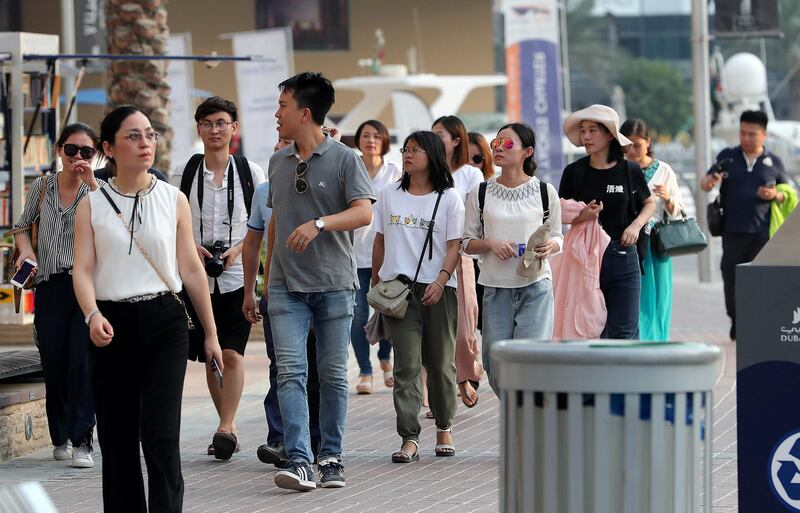Sweeping changes to the visa system will help boost tourism in the UAE by encouraging stopovers, according to experts.
The UAE Cabinet approved a string of updates to the visa system on Wednesday, including a decision to exempt transit passengers from all entry fees for the first 48 hours. They can then extend their transit visa for up to 96 hours, or four days, for just Dh50.
Citizens of a number of countries – including the UK and US – already receive a visit visa free of charge on arrival. But many do not, including citizens of India, Pakistan, most of the Arab world, Africa and South America, who require a visa that has to be processed well in advance.
The move follows a decision by the UAE Cabinet in April to to give more travellers a visit visa when they arrive at any UAE airport.
More than two-thirds of the total passengers who passed through the UAE's airports in 2017 were in transit, according to official figures.
It represents a saving of about Dh370 for these passengers, according to Mamoun Hmedan, managing director of Wego Middle East, a travel metasearch engine.
The UAE is home to two of the largest airlines in the world – Emirates and Etihad Airways – which carry many millions of passengers each year, he said.
“That’s a big sector of the business of the airlines here, transiting people from one place to another,” said Mr Hmedan.
"And I think that is the purpose of it. They see the traffic that they are generating and the potential they can get if they make it easy for people to come and experience the destination."
____________________
Read more:
[ UAE Cabinet approves day visas at airports to boost tourism numbers ]
[ 'It's going to be big': tourism industry prepares for one-day visa stopover boom ]
UAE day visas: things to do over 12 hours in Dubai and Abu Dhabi
_____________________
Gaurav Sinha, a Dubai-based tourism expert and chief executive of branding agency Insignia, said any policy that makes it easier for tourists to experience the country is only going to benefit the industry.
“It’s the first time in eight years that we have had more supply in hotel rooms than demand, so these sort of progressive policy changes clearly demonstrate the government is trying its best to boost tourism and ensure that the hospitality industry, which is a significant contributor to the GDP, continues to grow.”
However, given that many transit passengers often use hubs such as Dubai and Abu Dhabi as brief layovers, will probably not make much of an impact for the ordinary traveller, said Saj Ahmad, chief analyst at StrategicAero Research.
“But with this new policy in place, there is a very good chance now that the four major UAE airlines will revisit their offers for transiting passengers to ensure that the [Dh50 charge for 96 hours] is something that can be utilised, especially if people can be convinced it’s worth their time to break up a journey for a few days and enjoy the spoils of the UAE’s luxurious resorts, malls and dining experience,” he said.
“This would fit in extremely well with the high calibre quality found on UAE airlines like Emirates and Etihad.”
And tour operators are starting to become more aware of transit passengers, according to Mais Alnuaimi, chief executive and co-founder of Mundana, a Dubai travel agency.
“[They] are beginning to offer packages tailor-made for the transit passenger, with full-day itineraries taking travellers back to the airport in time for their next flight,” she said.







